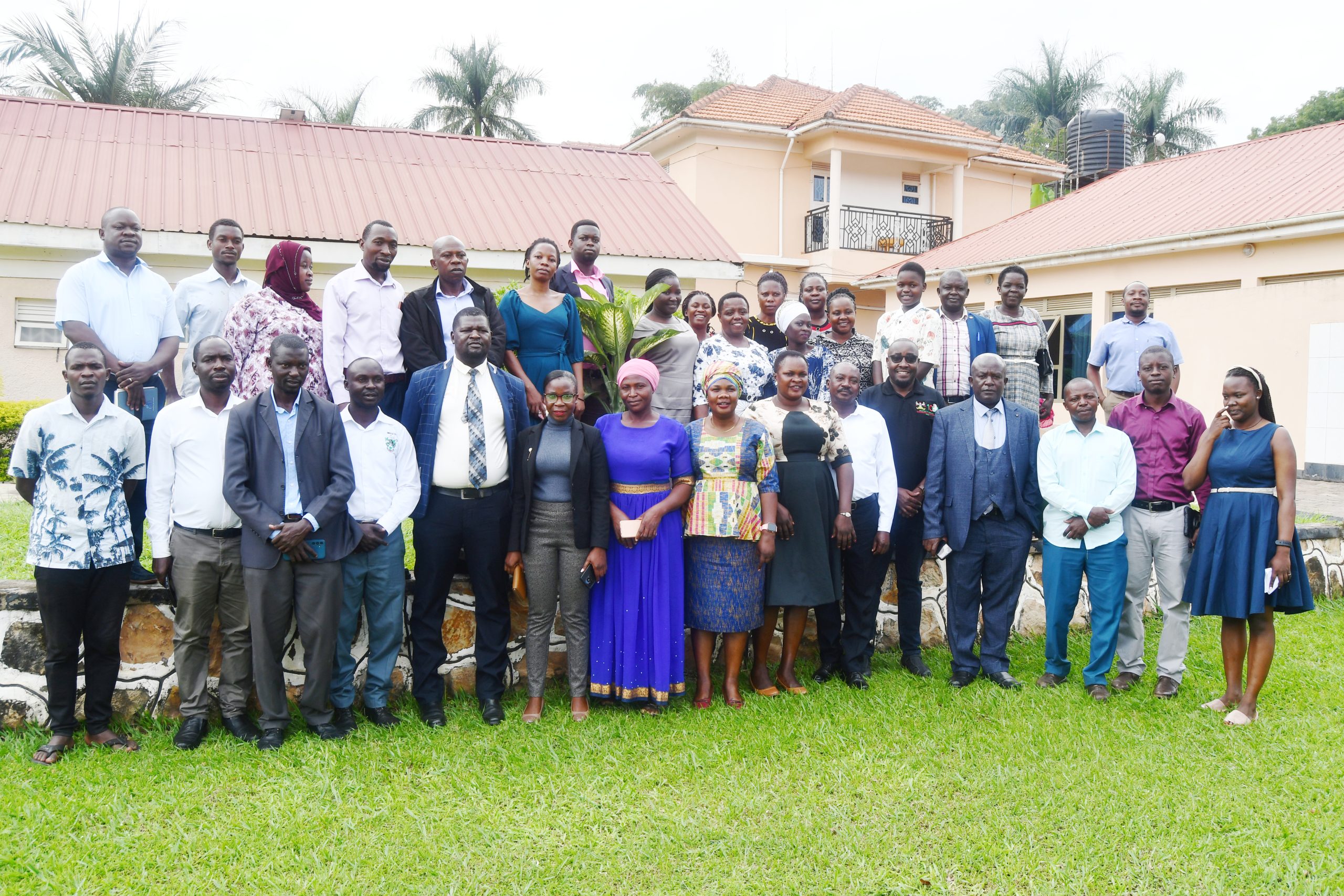
Overview of Phase I
The Resilient Urban Food Systems (RUFS) project was initially launched in 2021 under the theme: “Unlocking the Potential of Smallholders for Urban Food Systems Resilience in Kasese Municipality and Mbale City”. Funded by Sida through the Agriculture for Food Security Programme, the project aims to contribute towards ending hunger, achieving food security, improving nutrition, and promoting sustainable agriculture.
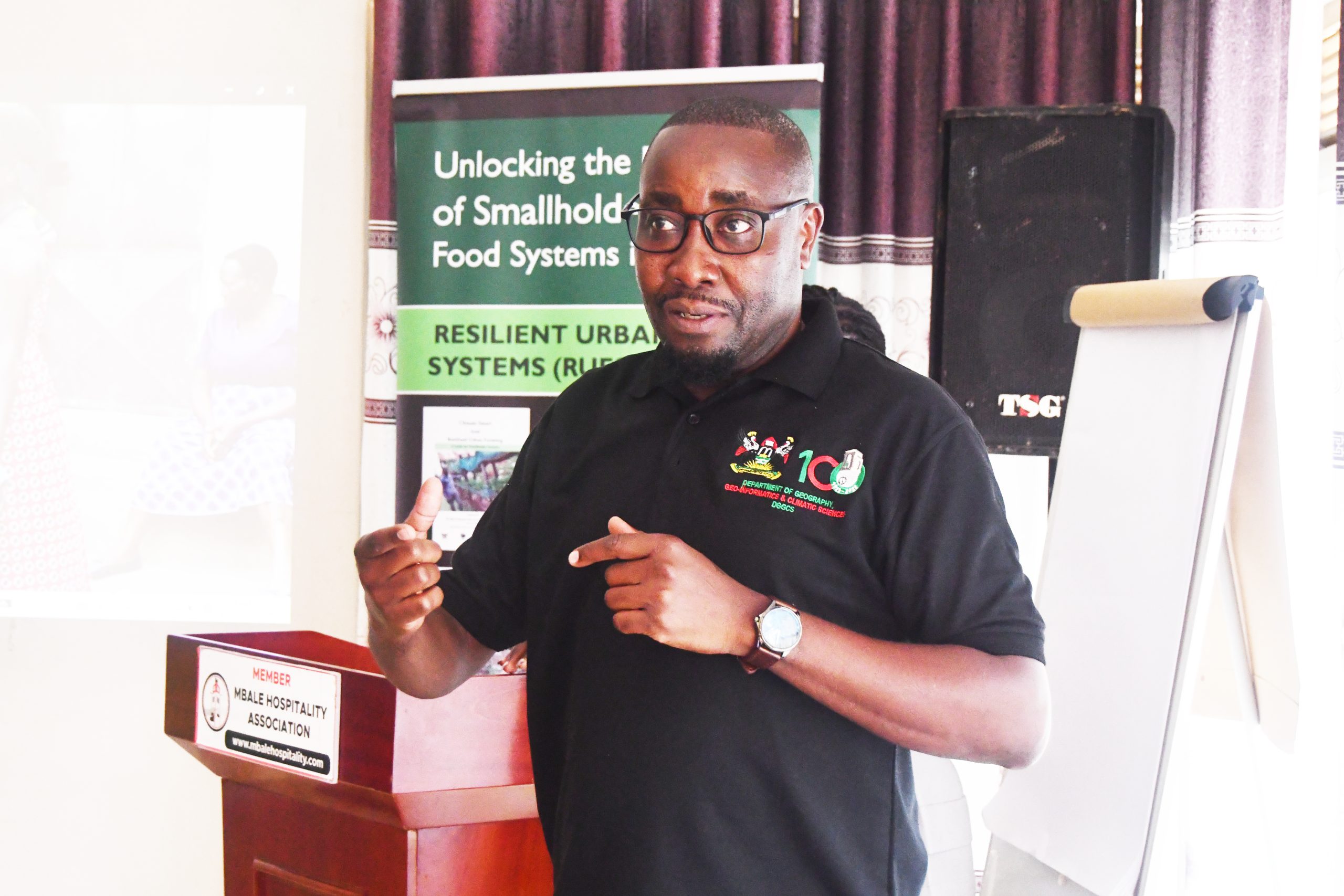

Prof. Frank Mugagga from the Department of Geography, Geo-Informatics, and Climatic Sciences at Makerere University coordinates the initiative. The project’s strategic focus is on strengthening the capacity of smallholder farmers to enhance urban food systems’ resilience, thereby supporting sustainable urban development and food security in the targeted regions.
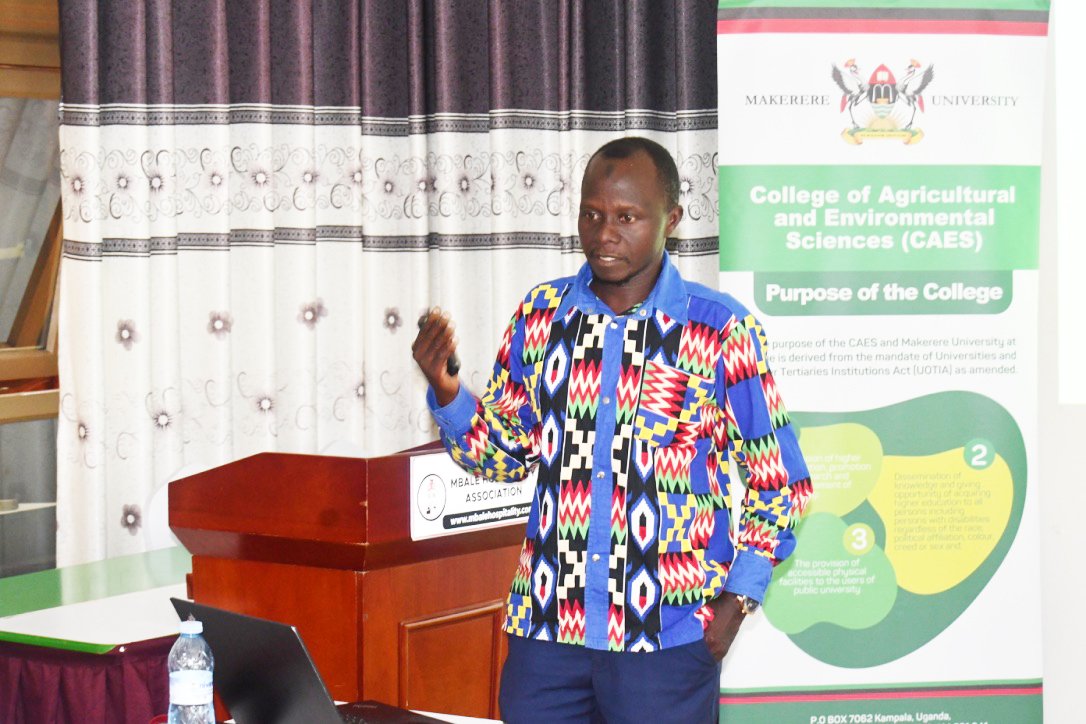
Achievements of Phase I
The initial focus of the project was on group dynamics involving group formation for dialoging, farm records, access to finance, and actualization of stakeholder platforms. These were a success and below are achievements registered under Phase I.
- Formation and formalization of smallholder farmers groups
- Multi-stakeholder food systems platforms, as alternative spaces.
- Exposure and exchange visits as domains of change
- Empowerment and enhancement of local expert capabilities.
- Commitment of resources by the local leadership towards promoting inclusive resilient food systems.
- Recognition of the role-played by smallholder farms in urban food systems.
- Empowered local voices through documentation e.g. Mr. Jumu Wepukhulu, a smallholder farmer from Mbale City was supported in publishing a manual on ‘Climate Smart and Resilient Urban Farming’.
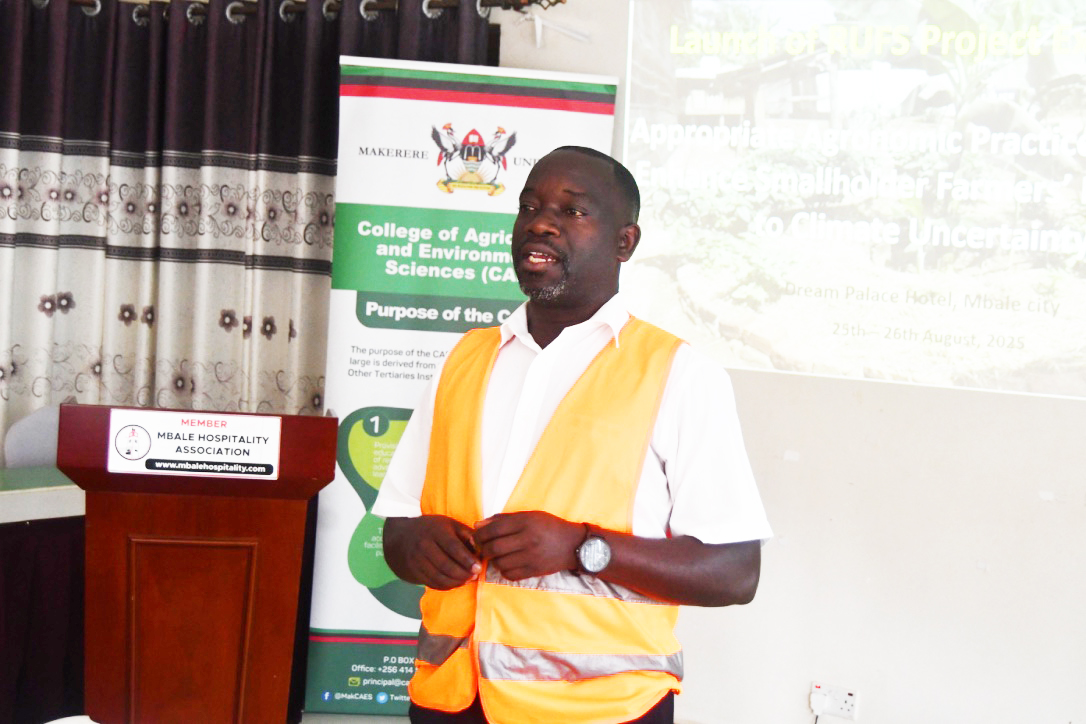
The Launch of the Second Phase of RUFS Project in Mbale City
The second phase of the RUFS Project was officially launched in Mbale City on 18th August 2025. The launch took place during a two-day stakeholder engagement held at Dream Palace Hotel from 18th to 19th August 2025 to introduce the extension phase and discuss the implementation plan. The event brought together various stakeholders, including implementing partners such as researchers and staff from Makerere University, smallholder farmers, representatives from Mbale City, and technical experts.
Phase II of the project will focus on “Strengthening Urban Food Systems Resilience to Flood and Drought Risks through New Strategic Partnerships in Kasese Municipality and Mbale City.”
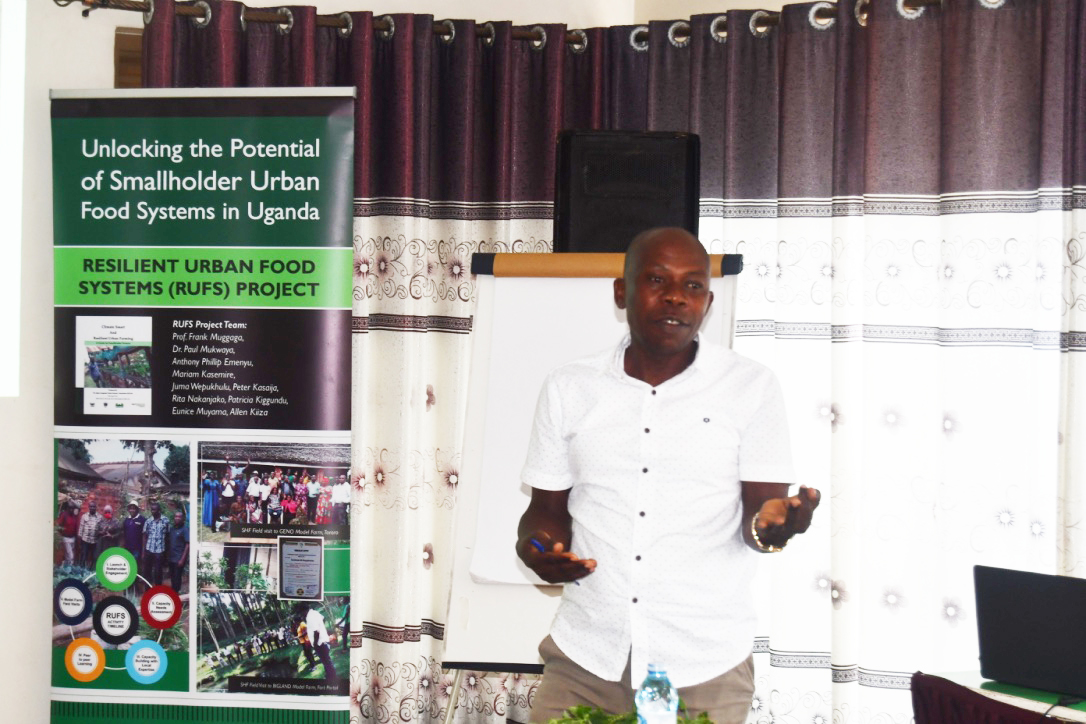
Strategic Focus of RUFS Phase II
RUFS Phase II is guided by a set of strategic goals aimed at building stronger, more climate-resilient urban food systems in Kasese Municipality and Mbale City. At its core, the initiative is committed to deepening stakeholder collaboration to strengthen urban communities’ capacity to withstand the impacts of floods and droughts. Key areas of focus include empowering communities with the knowledge and tools needed to anticipate, prevent, and adapt to climate-related risks. By fostering climate awareness and practical resilience skills at the grassroots level, RUFS Phase II aims to enhance community preparedness and reduce vulnerability.
A distinctive aspect of this phase is the deliberate integration of indigenous and local knowledge into urban planning and policy development. By valuing lived experiences and cultural wisdom, the project seeks to ensure that solutions are both locally grounded and sustainable. In addition, RUFS Phase II emphasizes co-creation of knowledge through dynamic partnerships with government agencies, academic institutions, civil society, and community organizations. This inclusive, evidence-informed approach is designed to support effective climate adaptation and long-term resilience for urban food systems in Uganda.
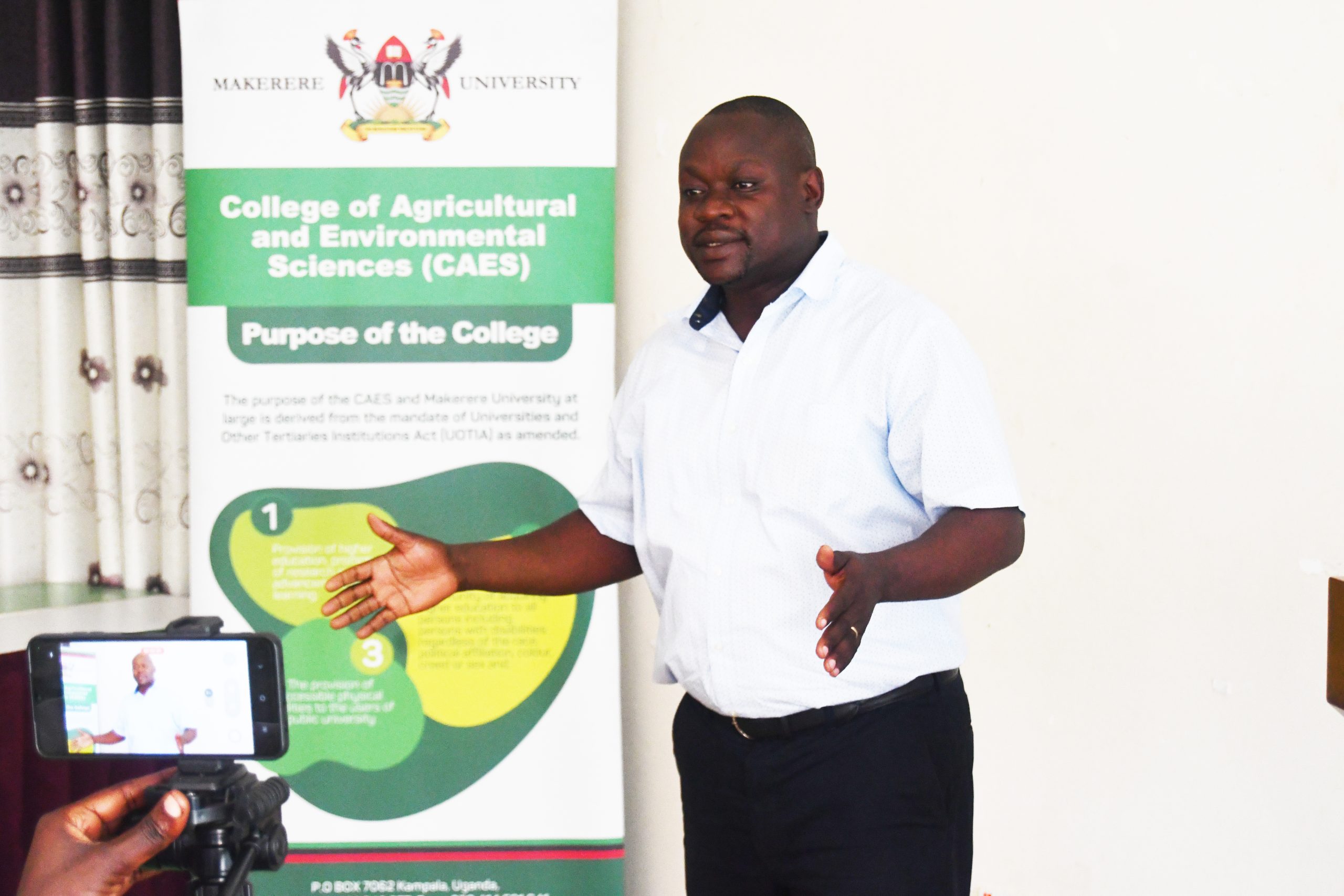
Key Presentations and Remarks by the stakeholders
The event featured a series of engaging and informative presentations by key stakeholders, each shedding light on critical areas of urban farming, climate resilience, and financial inclusion:
In his remarks, Prof. Frank Mugagga from the Department of Geography, Geo-Informatics, and Climatic Sciences, Makerere University highlighted the achievements registered during the first phase of the project, which led to its extension. He acknowledged the transformative role the initiative has played in promoting resilient urban food systems and empowering smallholder farmers. Prof. Mugagga expressed heartfelt appreciation to the funders. “We express our gratitude to AgriFoSe2030 for their continued support and partnership in advancing resilient urban food systems and empowering smallholder farmers.”
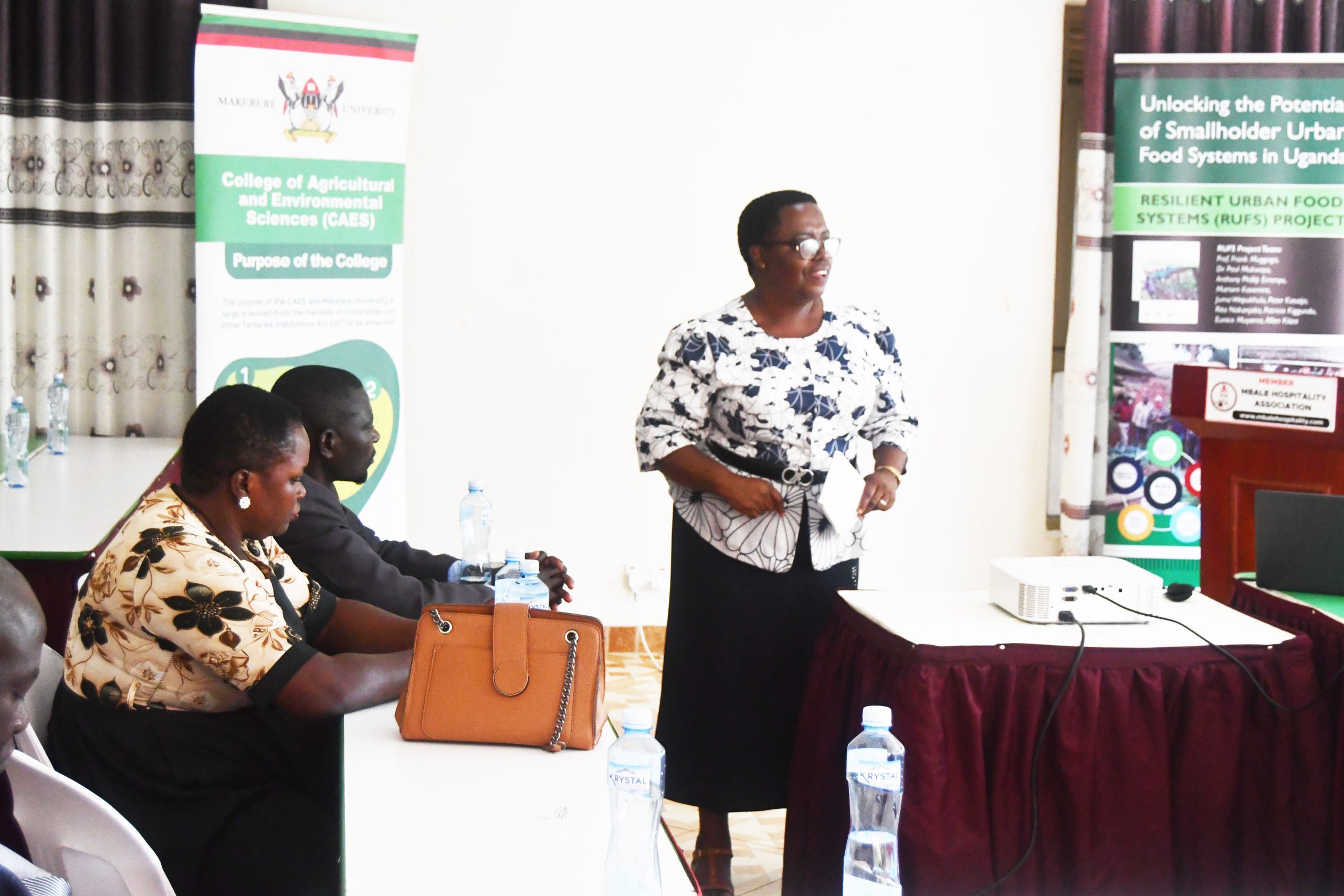
In his presentation focused on improving smallholder farmers’ resilience, Mr. Ismael Ssemakula from Uganda Red Cross Society, Mbale City enlightened the participants on disaster operations. His presentation gave insights on what has been done in regard to relief and emergency response to climate extremes in Mbale City. Mr. Ssemakula elaborated on the pivotal role of the Red Cross in emergency response, disaster preparedness, and management, offering a comprehensive and insightful overview of the organization’s operations at national and community-level.
Mr. Stephen Magembe, Head of Loans at Centenary Bank, Mbale Branch, presented the financial opportunities available for women entrepreneurs under the GROW Project. He emphasized the bank’s commitment to supporting women-led agricultural ventures through accessible financing models tailored to their unique needs.
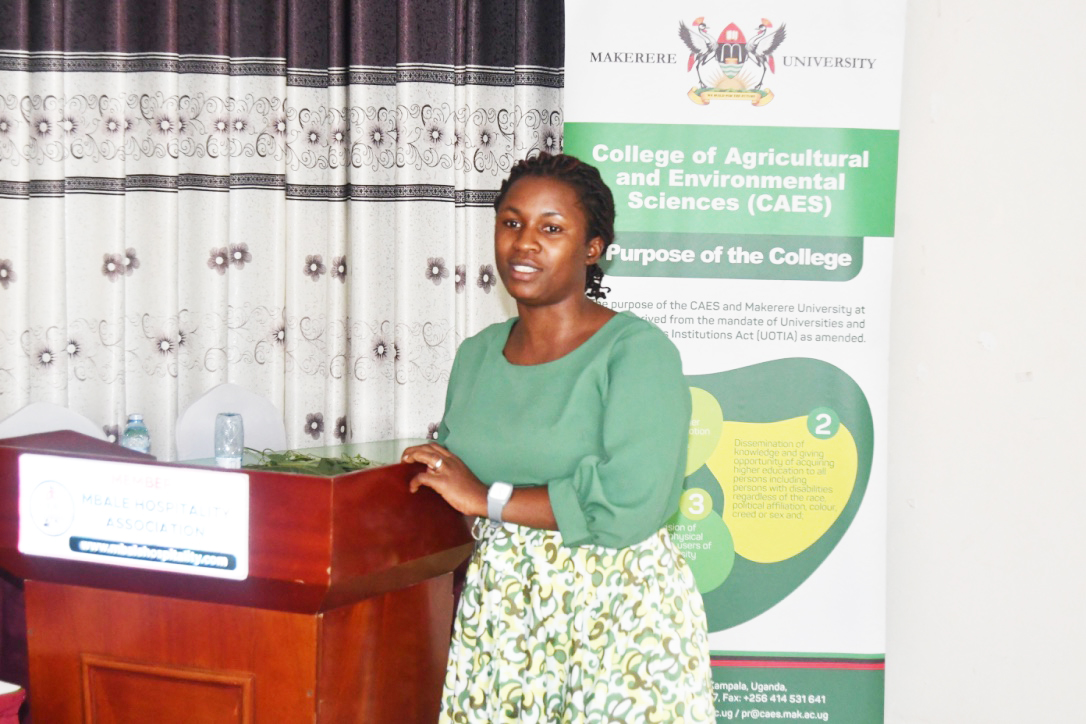
Mr. Henry Stanley Mbowa from AidEnvironment, alongside Mr. Wanambwa Gabriel, Agricultural Officer of Mbale City, delivered an insightful session on climate-resilient agronomic practices. Their presentation covered a range of essential topics including land preparation, crop management, pest and disease control, water conservation, postharvest handling, and market access, equipping farmers with practical strategies to improve productivity while adapting to the effects of climate change.

In an inspiring presentation on “Building Smallholder Farmers’ Resilience through Commitment and Inspiration,” Ms. Eunice Mutoro Sunday, an urban farmer from Kasese and lead smallholder on the RUFS Project, shared her personal journey and innovations in urban agriculture. Fondly known as “Kitchen Farming” in Kasese, she has become a symbol of dedication to sustainable living and urban food security. Motivated by a passion for healthy eating and community well-being, Ms. Mutoro has successfully integrated organic farming practices at home, using animal waste for manure and cultivating nutrient-rich crops like spinach, dodo (cassava leaves), onions, and tomatoes. Her efforts have not only improved her family’s nutrition but also inspired others in her community to embrace urban farming as a solution to malnutrition and food insecurity. 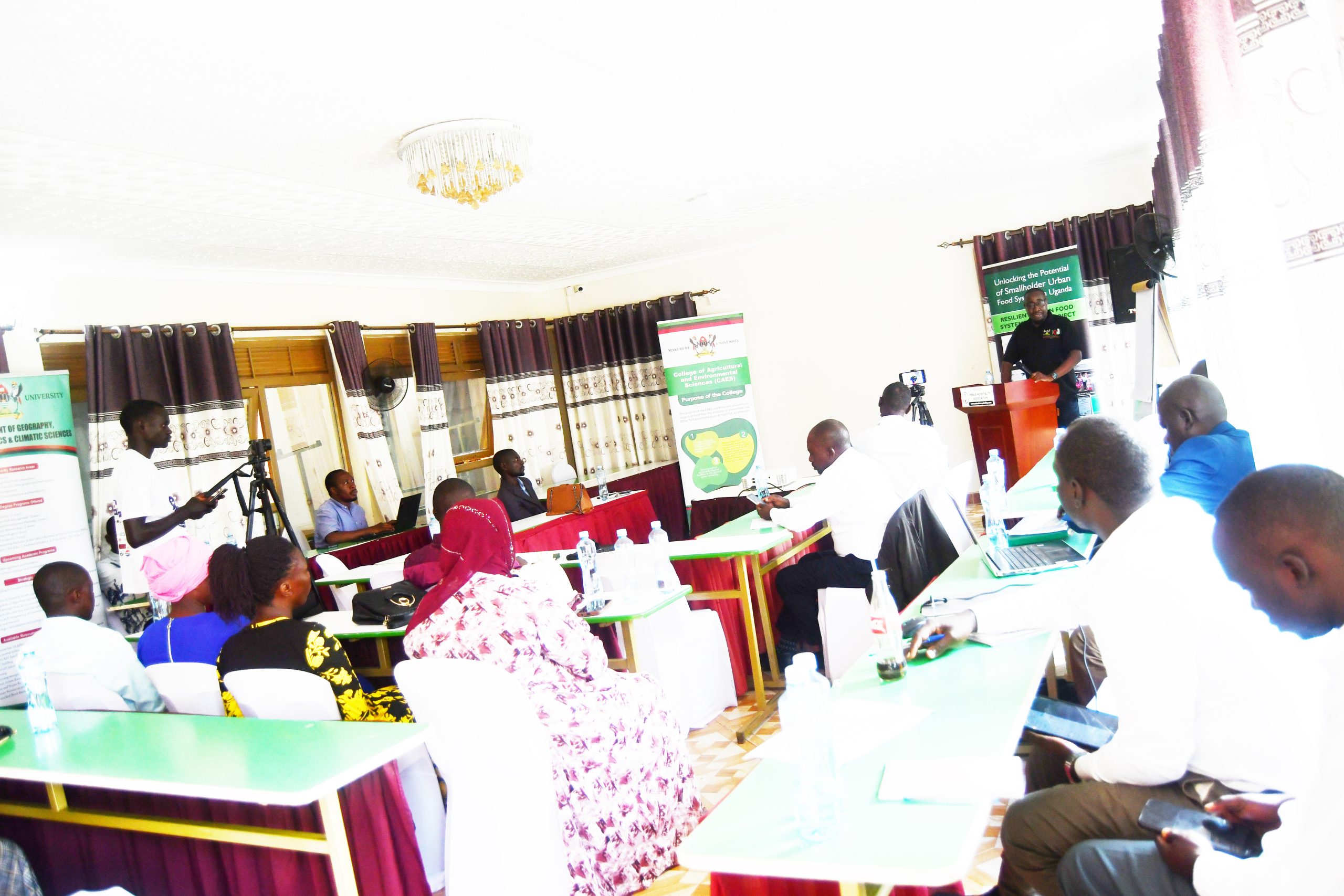
Mr. Peter Businda from REKOLTO Uganda, along with Ms. Eunice Muyama, provided valuable updates, lessons learned, and shared experiences from ongoing initiatives in Mbale City. Their contributions highlighted the importance of collaboration, community engagement, and knowledge sharing in scaling urban agriculture and enhancing local food systems.
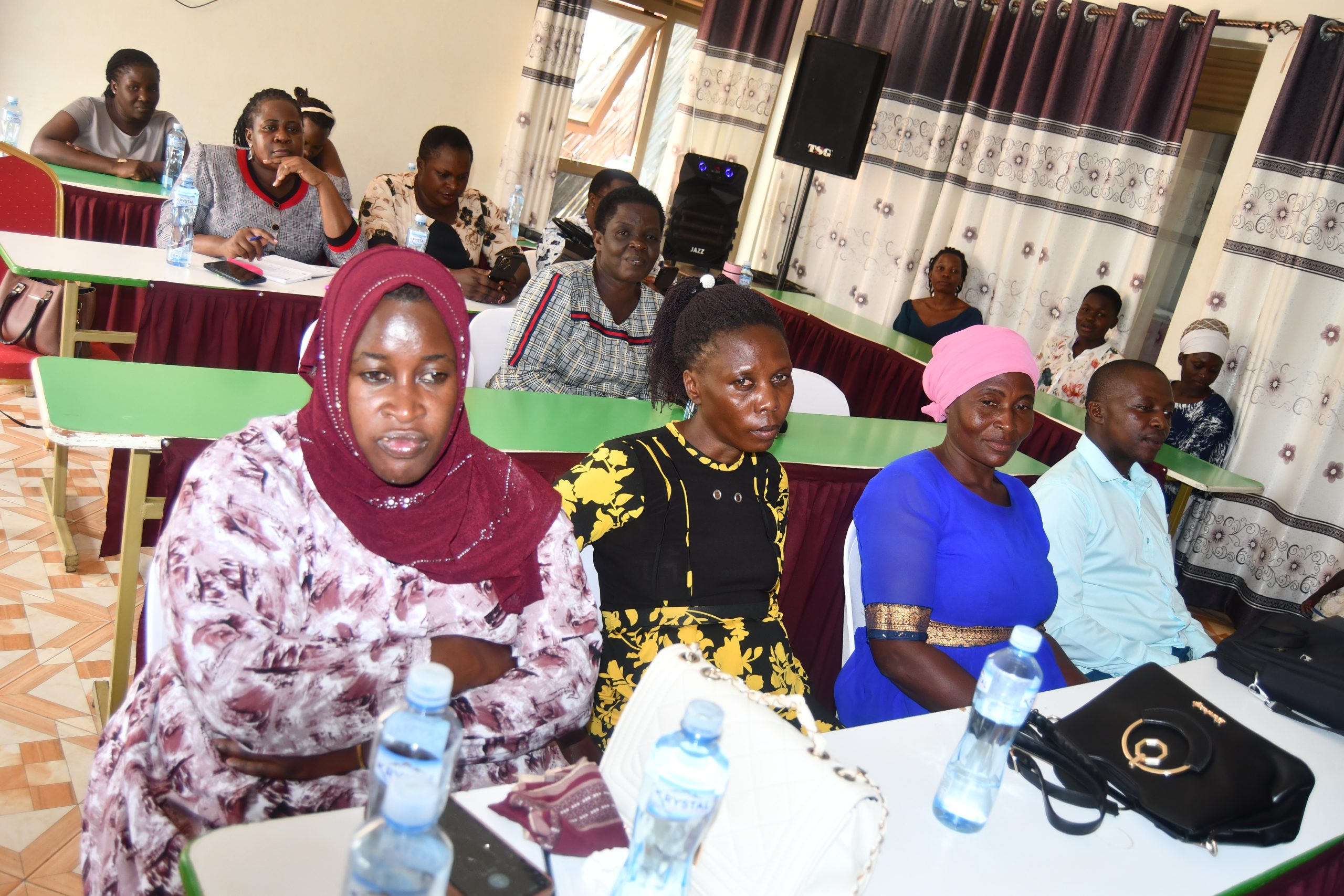
Ms. Allen Kiiza, a smallholder farmer from Kasese, presented effective strategies for mitigating the impact of recurring floods from River Nyamwamba. She highlighted the empowerment of local leaders and the introduction of a disaster notification app that alerts communities in real time. Additionally, she noted that the loud rumbling sound of floodwaters, caused by stones carried by the river, acts as a natural warning system. Her presentation highlighted the critical role of community awareness, technology, and local leadership in strengthening disaster preparedness and resilience among smallholder farmers. Ms. Kiiza expressed heartfelt appreciation to Makerere University for selecting Kasese as one of the project’s implementation sites. She noted that the initiative has been a true eye-opener, significantly bridging the gap between farmers and technical officers, and empowering local communities with the knowledge and tools needed to protect their lives and livelihoods.
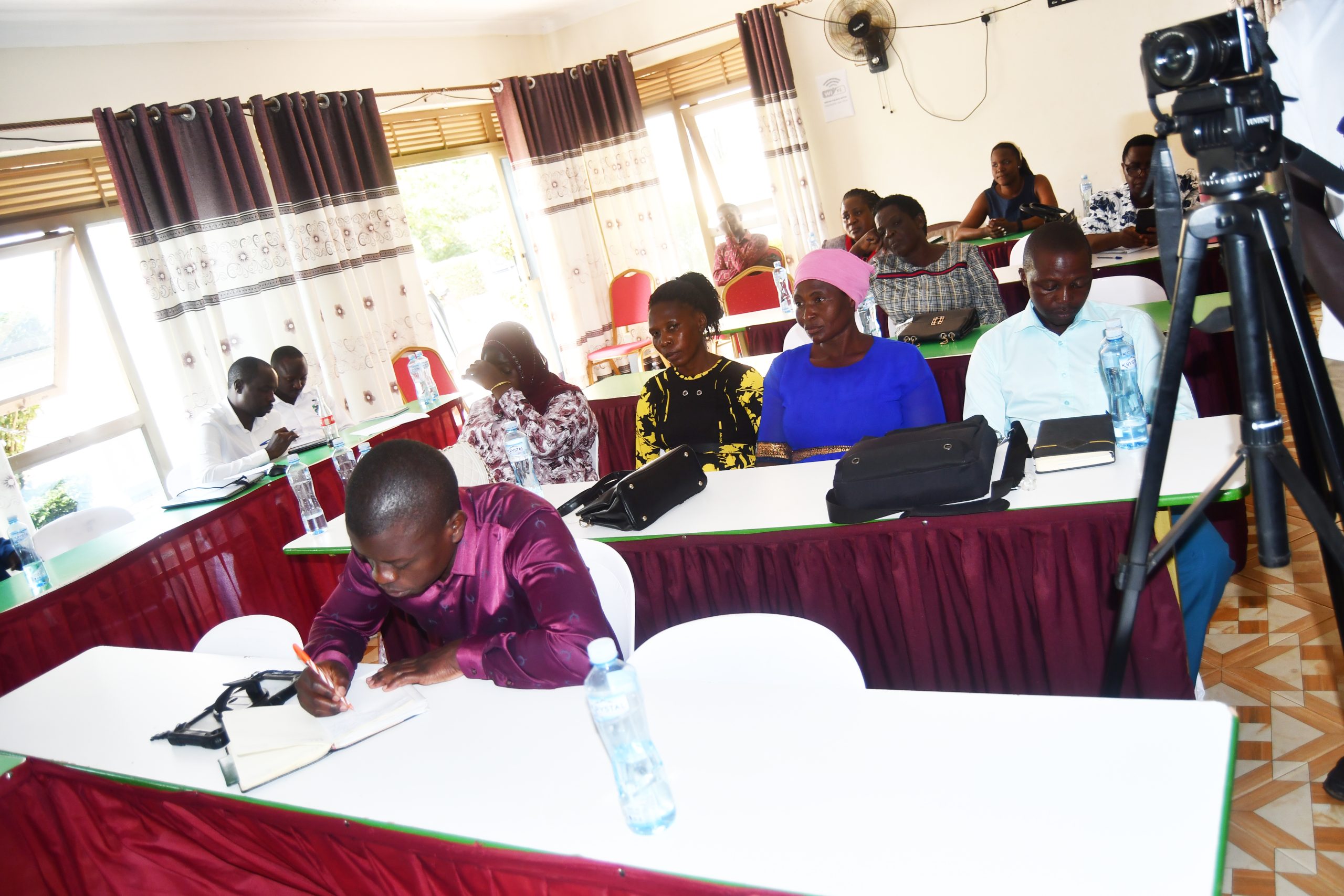
Ms. Eunice Muyama, a Physical Planner from Mbale City and a dedicated RUFS Champion, underscored the importance of building resilience among smallholder farmers in the face of increasing climate-related risks. She emphasized that while disasters are inevitable, what truly matters is how communities prepare for and mitigate their impacts. Her message was a call to action for farmers to prioritize disaster preparedness, proactive planning, and the adoption of climate-resilient practices, reinforcing that awareness and readiness are key to safeguarding both livelihoods and food systems.
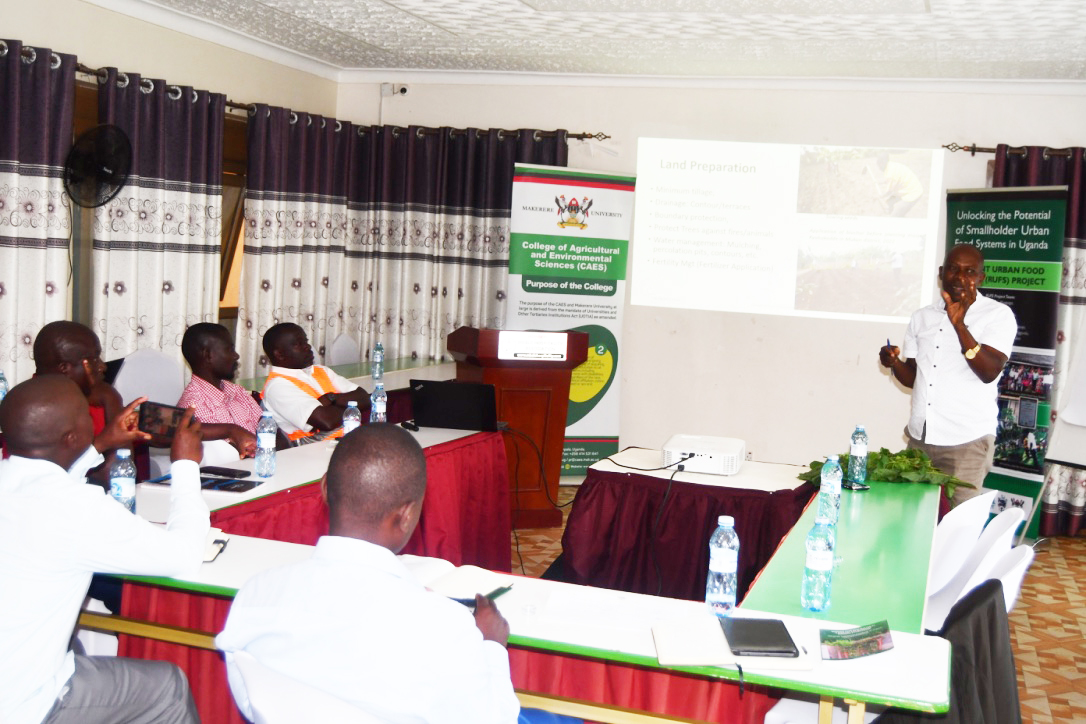
Summary of Key Deliberations from the Stakeholder Engagement
- The event underscored the urgent challenges facing the country’s food systems, particularly the growing emphasis on profit over public health and sustainability. In pursuit of higher yields and longer shelf life, many farmers rely heavily on pesticides and chemicals, practices that have contributed to widespread food contamination and a steady decline in food safety. This shift away from traditional farming and marketing methods has not only compromised the integrity of food but also increased environmental degradation. Polluted water used in food processing has further exacerbated health risks, making it clear that current agricultural models are no longer sustainable. To address these pressing issues, urban farming is key as a transformative solution. Urban agriculture promotes cleaner, safer, and more sustainable food production by bringing cultivation closer to consumers, reducing the need for harmful inputs, and improving oversight of food sources.
- As urbanization accelerates, so does the demand for food, necessitating innovative approaches such as growing crops within cities or repurposing abandoned rural lands. However, this growing demand comes at a time when arable land is diminishing and water quality is deteriorating. Meanwhile, consumption patterns remain unchanged, and climate change continues to intensify pressure on our already fragile ecosystems.
- Shifting mindsets through awareness and education is essential. By fostering a culture of self-sufficiency and sustainability, individuals and communities are empowered to take control of their food systems. This empowerment not only strengthens local resilience but also contributes to long-term food security.
- Urban farming must be prioritized, not as an alternative, but as an essential part of the country’s future. The earlier people are engaged in cultivating their own food, the sooner we can build a more secure, equitable, and environmentally responsible food system.
- The first phase of RUFS_Project played a pivotal role in this transition by building the capacities of smallholder farmers, who are the backbone of our food supply. Their contributions are vital in sustaining food production and ensuring that healthy, safe food remains accessible for all.
